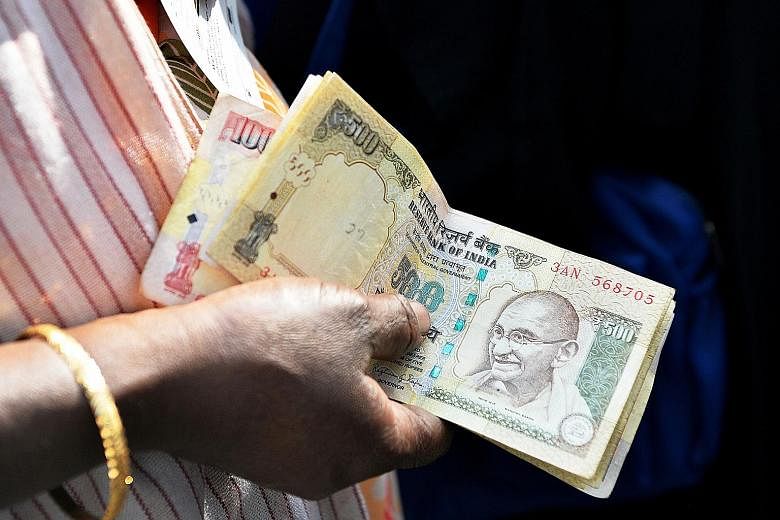NEW DELHI • Indians have deposited nearly all the currency bills outlawed at the end of the deadline last year, according to people with knowledge of the matter, dealing a blow to Prime Minister Narendra Modi's drive to unearth unaccounted wealth and fight corruption.
Banks have received 97 per cent, or 14.97 trillion rupees (S$316 billion), as of Dec 30, the deadline for handing in the old banknotes, the people said. They asked not to be identified because of rules involving speaking with the media.
The government had initially estimated that 5 trillion rupees of the 15.4 trillion rupees rendered worthless by the move on Nov 9 last year would remain undeclared as it may have escaped the tax net illegally.
A full validation of the banknotes is a setback for Mr Modi, who had been relying on this move to burnish his administration's corruption-fighting credentials.
The anti-corruption measure has dented economic growth and forced millions into joining lengthy bank queues to change banknotes, although it remains broadly popular.
"The Prime Minister had been ill-advised and the government was not prepared to handle the situation," said honorary fellow at the Indian School of Political Economy Nilakantha Rath.
Private indicators published over the past week signal that the US$2 trillion (S$2.9 trillion) economy will be hurt by the cash clampdown, raising fears that a continued slowdown will strip India of its position as one of the world's fastest-growing major economies.
The figures on banknotes deposited are provisional and may change, the people with knowledge of the matter said.
Although Mr Modi's credibility has been dented, the jury is out on the long-term economic and political fallout. So far, his public support remains strong, with some in lines waiting to access cash still voicing their approval of his decision to target unaccounted wealth.
Demonetisation, as the government move was termed, has become a major election issue in states going to the polls this year.
Uttar Pradesh, a bellwether state of 200 million people that sends more representatives to India's Upper House than any other region, will vote in seven phases between Feb 11 and March 8, Chief Election Commissioner Nasim Zaidi said on Wednesday. Punjab and three other states will also vote during this period to select a local government. All results will be announced on March 11 .
BLOOMBERG

